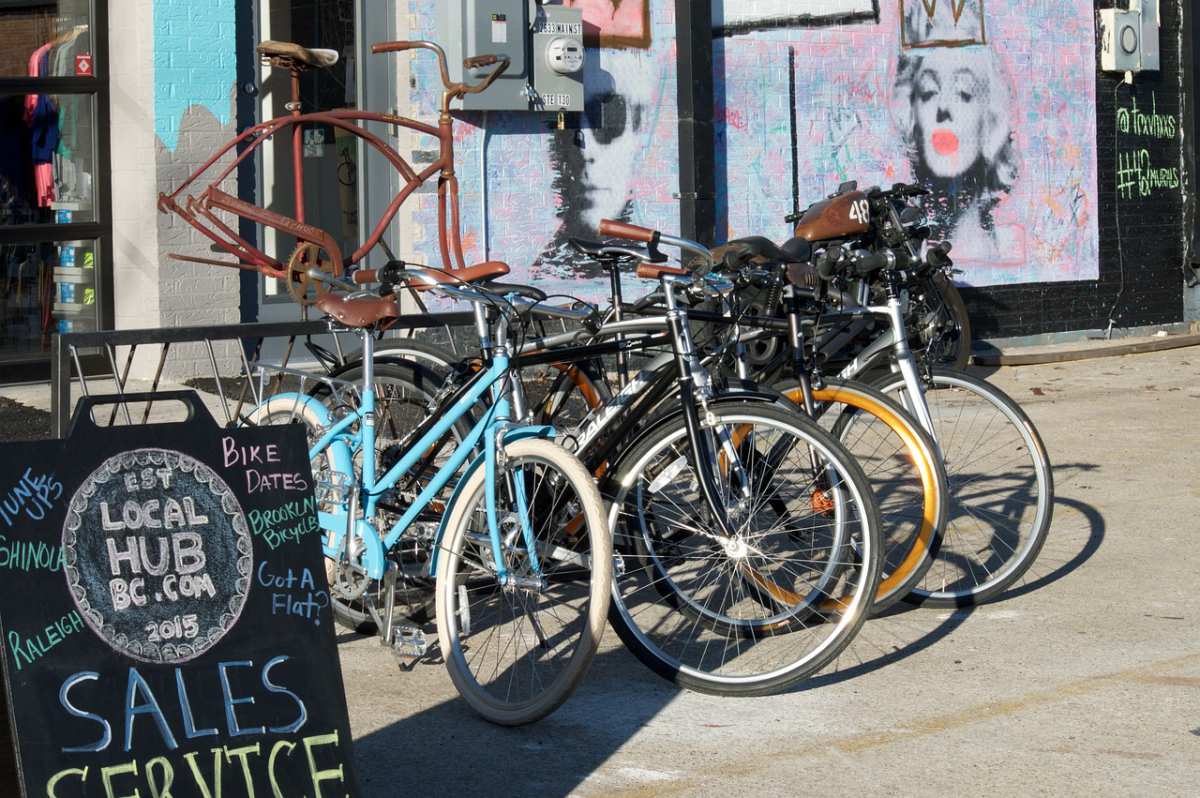Company bike plan for employers & employees
Would you like to cycle to work (more often)? Or encourage your employees do this? Cycling is good for people and the environment, for these reasons certain fiscal and legal benefits have been made available by the government, to help stimulate an increase in bicycle usage. For example, as an entrepreneur you can buy a ‘company bicycle' for your business. Or as an employee, you may be able to get (part of) your bike reimbursed by your employer. There are different regulations for different situations. In the following article Moneywood provides some information about these schemes.

Paid employment: Bicycle plan for employees
As an employee, would you like to cycle to work, or do you regularly go to work by (electric) bicycle? Then you can make various agreements with your employer regarding a contribution to the costs:
Are you a director or major-shareholder (DGA)?
You are on the payroll of your BV at the Tax and Customs Administration and can therefore use the same rules as employees.
- Travel expenses
Since 2024, employers have been allowed to reimburse their cycling staff tax-free up to a maximum of €0.23 per kilometer, for a maximum of 40 kilometer’s per day. More is also allowed, but is considered income and thus taxed. Your boss is not obliged to reimburse your mileage. Only if explicit agreements have been made for this, (for example in your collective labour agreement or employment contract) are you legally entitled to compensation for travel expenses. If you have no arrangement with your employer it may be beneficial to discuss the possibilities with them. Don't get a mileage allowance? Then you may be able to declare your mileage on your annual income tax return.
- A company bicycle (private use)
Are you considering purchasing a new bicycle? Have you discussed the ‘Company Bicycle’ option with your employer. An employer can purchase a company bicycle, which You can then use a for both commuting and private use. In return for the personal use of the bicycle, the employer must then charge you a small monthly amount of additional tax: 7% of the new price (list price, click here for an overview in Dutch) will be added to your salary. You then pay tax on that amount as compensation for the personal benefit you have from the bike. In exceptional cases, your employer can choose to make use of the final levy wage scheme. If this is the case you do not have to pay an additional tax liability and the bicycle becomes completely free for you.
- Commuting
If you only use a company bicycle for commuting, your employer does not have to charge an additional tax. If this is the case, you are not allowed to use the bike privately and you are not entitled to a mileage allowance.
- Bicycle plan
Does your employer participate in a bicycle plan? Then this gives you the opportunity to buy a new bicycle yourself with a tax advantage: You pay the purchase price from your gross salary. As no tax has been deducted from your gross salary, you are able to buy the bike at a discount, as it becomes tax-free. With this scheme, the bike is yours and you decide for yourself - without additional tax liability - how, what, where and when you cycle with it. Does your employer not have a bicycle plan? It may be worthwhile asking whether he/she is open to implementing this.
Are you an employer?
The government allows the use of the net/gross income allowance, in order to encourage uptake of bicycle plans. The amount of gross income made available for the purchase of the bicycle, can be designated as final levy wages. Make sure you stay within the free space.
Arranging a bicycle plan as an employer
If you, as an employer, want to purchase an (electric) bicycle for an employee, we have listed below some important points which may be of interest to you, regarding income tax returns:
- For payroll taxes, the value of the bicycle is 7% of the recommended retail price. Regardless of how much the bicycle is used privately. I.e. the bicycle may also be for 100% personal use. for the tax authorities and not to go to work on it.
- Calculating the list price of company bicycles: You add the additional income for the private use of the bicycle to the employee's gross annual salary. You then deduct wage tax/national insurance contributions from the this amount of this for each tax return period.
- You also pay the employee insurance premiums and the employer's ZVW levy to the Tax and Customs Administration on the addition to taxable income.
- If the employee contributes to the company bicycle, you can deduct this monthly contribution from the addition. But beware: the personal contribution may not be higher than the addition.
If, as an employer, you want to stimulate cycling amongst your employee’s, have you considered participating in the campaign 'That's how you cycle'? (in Dutch only) This government scheme provides insight into the benefits of and possibilities for cycling more often. You can sign up here (in Dutch only) to contribute to the mission 'choose the bike'. With 'Choose the bike', the government aims to get 10% more employees on their bicycles together with employers.
The amount of Additional income made available for an employees bicycle can remain untaxed if you designate that amount as final levy wages. If you want to make use of this scheme, it is important that you are sure that there is sufficient free space for this. This prevents you from having to pay 80% tax on the addition, via the final levy.
Want to know more?
Moneywood also has articles about the company car and company bicycles for entrepreneurs. In this article from the NFP Group you can read (in Dutch) more about bicycle plans and the tax benefits for employees.
Moneywood stands for a multidisciplinary deployment of tax, legal and economic expertise. We provide advice and guidance to companies, institutions and individuals on life events and important events in the business or personal field. Moneywood helps you to make well-informed choices .
